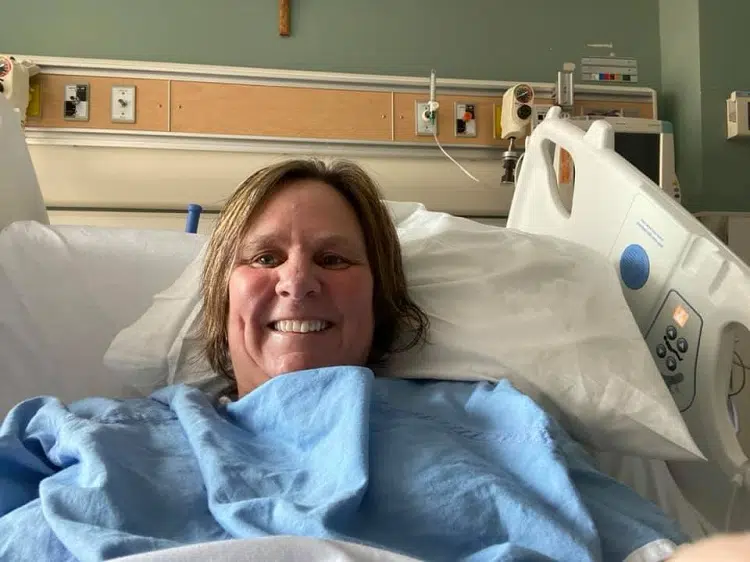What started out as a small cough and a slight fever led to Yorkton’s Kathy Ziglo fighting for her life in the ICU after contracting COVID-19.
Ziglo, who’s 47, is a multi-championship-winning Saskatchewan amateur golfer. She said her partner tested positive for COVID-19 on Nov. 21 and, while Ziglo had a slight cough, she tested negative the next day.
Her health kept deteriorating, however, and she experienced a loss of appetite, along with aches and a fever. She then went to get tested again on a few days later — this time struggling to even get to her car.
She tested positive.
After beginning to experience severe vomiting, diarrhea and dehydration, along with her existing symptoms, she decided she needed medical attention.

Ziglo was immediately transferred to the ICU. A nurse told her she would have to be intubated and that she had a few hours to prepare.
Intubation is a medical procedure that involves the insertion of a tube through the mouth and into the patient’s airway. It is done so that the individual can be placed on a ventilator to assist with breathing.
“For the next 48 hours, I counted eight screws, and breathed,” Ziglo said. “I never slept (and) I never closed my eyes. I counted screws. I spoke to no one. I had one job: To breathe.
“Everything was going so quickly; I just didn’t understand what was going on.
“There were these two pieces of paper on the wall and each had four screws holding them up, so I just started counting ‘one, breathe, two, breathe, three, breathe.’ I just kept going around and around, and within two hours my stats actually went up 10 per cent. I asked the nurse if I could have more time before being intubated. So, they checked my vitals and for the next 48 hours, I counted these eight screws. I didn’t sleep. I just stared at the wall.
“I was scared. All of my energy was going into literally learning how to breathe. I would get caught up and I wouldn’t be able to take a breath, I wouldn’t know how and I was gasping, choking. Things were getting very dire, very quickly.”
Ziglo remained in the ICU for a few days, until her condition improved enough to be moved out.
She remains on steroids to help her lungs but will be re-evaluated in the next few days to see if her condition has improved enough to be released.
Ziglo says she took the threat of COVID-19 seriously leading up to her diagnosis, but at the very beginning there was some skepticism.
“I’m not going to debate masks, but it’s the easiest way to protect yourself,” she said. “I don’t even know why people wouldn’t wear one. At the very beginning of the pandemic, it reminded me back to SARS where you’d see someone in a mask and think it was a bit much, but I got over that pretty quick. I know leaving this hospital, I will not go anywhere without my mask.
“If the opportunity presents itself to get the vaccine, I will be standing at the front of the line.”











